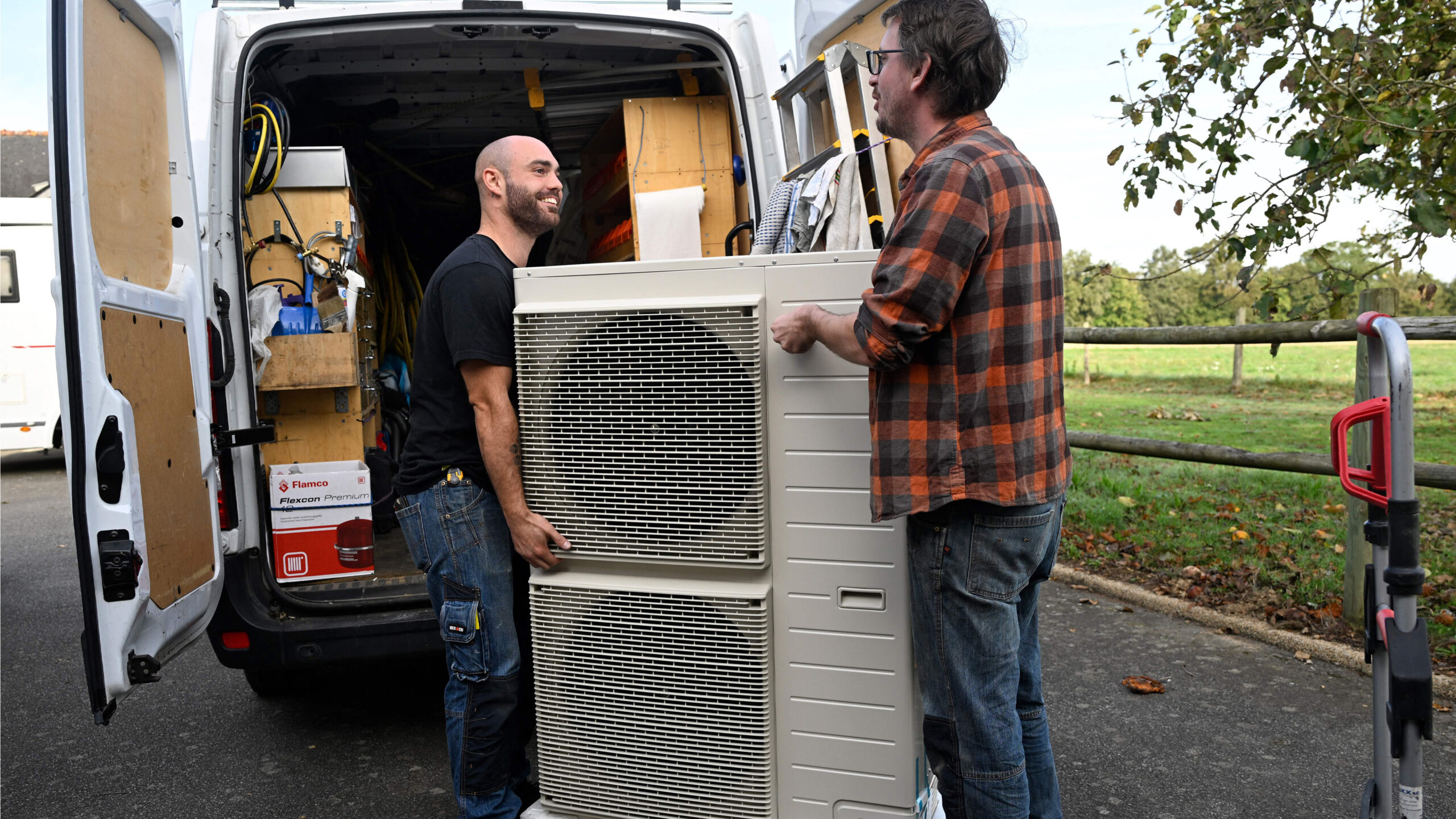
In Charts: 2023 European heat pump sales slump ‘not a surprise’ to industry

European heat pump sales drop for the first time in a decade as industry calls for policy certainty
Heat pump sales in 14 European countries slumped by 5 per cent last year compared with 2022, show the latest figures from the Brussels-based industry body the European Heat Pump Association.
Sales fell from 2.77mn heat pumps in 2022 to 2.64mn units in 2023, marking the first time in a decade that sales decreased rather than increased.
France, Italy, Sweden, Finland, Poland, Denmark, Austria and Switzerland all saw heat pump sales drop in 2022. But sales rose in Portugal, Belgium, Norway, the Netherlands, Spain and Germany.
Jozefien Vanbecelaere, the EHPA’s head of European affairs, says the 2023 slump was “not a surprise”.
“[In 2023,] we received signals from our manufacturers as early as September … flagging that it wasn’t going very well,” she tells Sustainable Views.
Vanbecelaere attributes 2023’s sales decline to a number of factors, including a lack of clear targets and policy direction from the European Commission and national governments, the general economic situation including high inflation, and a high electricity-to-gas price ratio. The commission’s decision to delay its Heat Pump Action Plan until after the June 2024 European elections “doesn’t help”, she adds.
In a recent note, investment bank Jefferies attributed the European heat pump sales slump to a “net zero backlash”, evidenced by increasingly right-leaning results in Europe’s past seven elections, vocal opposition to key pieces of EU legislation including the Emissions Trading System for Buildings and Transport and the Nature Restoration Law, as well as the “fractious farmers protests”.
Record sales in 2022
Last year’s disappointing results follow record sales in 2022, bolstered by the EU’s commitment to reduce dependence on Russian gas following the invasion of Ukraine, says Vanbecelaere. The commission’s RePowerEU policy package committed to “frontloading investment” into heat pumps and other energy transition technologies.
The latter quarters of 2023 saw a greater sales decline than in the first half of the year, since at the beginning of the year a number of European countries were still processing and delivering on requests from the 2022 heat pump sales “boom”, she says.
Industry pessimistic about 2024
Looking ahead to 2024, Vanbecelaere says she sees “no signals that [the market] will immediately change”.
Rowena Rodrigues, director of external relations, governance and purpose at Irish heat pump manufacturer Glen Dimplex, agrees. “We cannot see when there will be a turnaround in the market conditions,” she told a press briefing organised by the EHPA on February 27.
Rodrigues called for greater clarity from the commission to ensure investment in the market and for the Heat Pump Action Plan to be published “without delay”.
Electricity-to-gas price ratio
More must be done to reduce the electricity-to-gas price ratio across Europe to increase the affordability of heat pumps, which in turn will drive sales, the EHPA says.
Vanbecelaere suggests “taking out taxes and levies which are on electricity bills”, but cautions against moving these taxes over to gas bills, which will impact low-income households, many of which continue to rely on gas boilers and stoves in Europe. Instead, a “polluter pays” principle should be adopted, under which fossil fuel companies are taxed more heavily, she says, adding that an alternative plan could be to subsidise electricity out of a country’s general budget.
UK-based climate change charity Possible published a report on February 28 also calling for a change to electricity levies to support heat pump sales. The UK has one of the highest electricity-to-gas ratios in Europe.
The report found that heating UK homes with heat pumps powered by locally generated renewable electricity could reduce annual heating bills by nearly a third while cutting emissions by up to 90 per cent. The report authors found that 3,700 of the most deprived neighbourhoods in England are within 1km of an area with good onshore wind resources, which could be used to develop community-owned renewable projects.
Possible senior campaigner Alethea Warrington said in a statement that harnessing wind power for heat pumps requires policymakers to focus on “sorting out energy billing systems which make clean electricity more expensive than dirty gas”.
Similar Articles

In Brief: US EPA issues final methane emissions reporting rule; Australia publishes ‘Future gas strategy’

Expanding UK ETS to cover heating and road transport fuels could cut domestic emissions by a quarter


